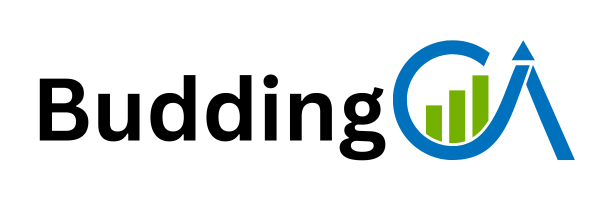Securing an articleship with a reputed firm is a significant milestone in the journey of every Chartered Accountancy (CA) student. Among the different domains in which articleship training is offered, statutory audit remains the most sought-after area, especially for those aspiring to work with top firms and Big 4 companies. However, preparing for a CA articleship statutory audit interview requires much more than just academic knowledge. It demands a blend of conceptual clarity, awareness of current auditing practices, and strong communication skills.
This article provides a comprehensive roadmap for CA aspirants to excel in their statutory audit interviews. From understanding the basics to mastering important interview questions, you will find practical strategies to boost your confidence and improve your chances of success.
Why Statutory Audit is Important for CA Aspirants
A statutory audit is a legally mandated process that involves an independent examination of an organisation’s financial records. Its main objective is to ensure the accuracy and fairness of the financial statements and to check compliance with accounting standards and regulatory requirements. For CA students, exposure to statutory audit during articleship is extremely valuable.
Scope and Learning Opportunities
- Real-world exposure: Articleship in statutory audit helps you understand how companies maintain records, follow laws, and ensure transparency.
- Skill development: You learn to review financial statements, identify compliance gaps, and suggest corrective actions.
- Career boost: Strong experience in statutory audit opens doors to top CA firms, government bodies, and corporates.
- Foundation for future: The practical training received during statutory audit sets a strong base for appearing in CA Final exams and also helps in the long-term professional journey.
Key Features of Statutory Audit
Let’s look at the main features that define statutory audits:
| Feature | Description |
| Objective | To give an opinion on the truth and fairness of financial statements |
| Governance | Conducted by independent, external auditors |
| Scope | Mainly financial records and accounts |
| Frequency | Annual, usually after the fiscal year ends |
| Appointment | Statutory auditors are appointed by shareholders |
| Reporting | Reports are addressed to stakeholders, mainly shareholders |
| Regulation | Controlled by statutory requirements and national/international audit standards |
| Legal Requirement | Mandatory for most limited companies and certain other entities |
| Nature of Work | Focused on verification and assurance, not advisory services |
| Focus Area | Compliance with financial reporting standards |
How to Prepare for the Interview: Step-by-Step Guide
1. Understand the Basics
Before you start preparing for technical questions, you must have clarity on the fundamentals:
- What is a statutory audit?
- What are the objectives and importance of audit in the corporate world?
- Which laws and standards govern statutory audits in India (Companies Act, ICAI guidelines, Ind AS, CARO, etc.)?
- What are the roles and responsibilities of an audit assistant or article trainee?
Tip: Make concise notes of these concepts. Reading ICAI’s study modules and practicing past exam questions is very helpful.
2. Go Through the Interview Syllabus
While there is no official “syllabus” for articleship interviews, most firms focus on:
- Accounting Standards (AS 1, AS 2, AS 10, AS 13, AS 16, AS 9)
- Company Law provisions (including Schedule III format)
- Audit concepts and processes (vouching, verification, audit evidence, audit sampling, etc.)
- GST and basics of taxation
- Recent amendments and current affairs relevant to audit (e.g., CARO 2020, changes in Schedule III)
- Practical scenarios and case-based questions
3. Practise Commonly Asked Interview Questions
Here are some frequently asked questions in CA statutory audit interviews:
Basic and Conceptual Questions
- What is a statutory audit?
- What are audit assertions?
- What is the difference between SLM and WDV methods of depreciation?
- How do you audit rent or salary expenses?
- What is external confirmation and why is it important?
Accounting and Law-Based Questions
- Applicability and importance of CARO 2020.
- Recent changes in Schedule III and their impact.
- Inventory valuation as per AS 2.
- Basic accounting assumptions as per AS 1.
- Qualifying asset as per AS 16.
Technical and Scenario-Based Questions
- How to prepare a bank reconciliation statement and its purpose.
- What are the types of audit opinions, and when would you issue a qualified opinion?
- How would you audit revenue recognition?
- Difference between a finance lease and an operating lease.
- How to verify the going concern assumption.
- Journal entry for a sale transaction with GST.
Practical and Real-life Questions
- Can you describe an audit programme?
- What is audit sampling and why is it used instead of 100% checking?
- How would you approach fraud detection during an audit?
- What is the importance of audit documentation?
4. Stay Updated on Recent Developments
Interviewers often test your awareness of recent amendments and changes in law:
- CARO 2020: New requirements for company audits, exemptions, and key differences from the previous version.
- Schedule III Amendments: Enhanced disclosure requirements (like ageing of receivables/payables, crypto transactions).
- GST and Taxation: Basic compliance, changes in rates, and reporting.
Tip: Regularly visit ICAI’s website, read newsletters, and follow credible CA education platforms for updates.
5. Master the Art of Vouching and Verification
Vouching and verification are core audit procedures. You may be asked practical questions like:
- How do you vouch expenses?
Answer: Check supporting documents, invoices, authorisations, purpose of expense, correct period and recording. - How do you verify inventory?
Answer: Physical verification, reconciliation with records, check valuation, and review movement of stock.
Tip: Practice explaining these processes step by step, using real-life examples from your studies or any internship experience.
6. Prepare for Core Accounting Standards and Schedules
Here are some key standards and schedules you should focus on:
- AS 1: Accounting assumptions—Going Concern, Consistency, Accrual.
- AS 2: Inventory valuation—Lower of cost or net realisable value.
- AS 10: Asset recognition and measurement.
- AS 13: Valuation of investments—Cost or fair value.
- AS 16: Borrowing costs and qualifying assets.
- AS 9: Revenue recognition—When risks and rewards are transferred.
- Schedule III: Formats and disclosures for balance sheet and P&L.
7. Focus on Communication and Presentation Skills
- Structure your answers using clear, logical flow. For scenario-based questions, use the STAR method (Situation, Task, Action, Result).
- Avoid jargon unless you can explain it.
- Give examples from your studies, articleship, or academic projects.
8. Review Practical Aspects and Journal Entries
- Practise common journal entries—sales with GST, purchase, expenses, depreciation, etc.
- Be clear with the difference between book depreciation and tax depreciation.
- Understand the importance of materiality, sampling, and audit evidence.
9. Be Ready for Law and Compliance Questions
- Who can be appointed as an auditor? What are the disqualifications?
- What is a “true and fair view” in auditing?
- What are the responsibilities of auditors under the Companies Act?
10. Develop Professional Attitude and Ethics
- Interviewers value professionalism. Maintain integrity, show respect, and demonstrate willingness to learn.
- Always answer honestly—if you do not know an answer, admit it and express your willingness to learn.
Sample Questions & Answers
Q1. What is materiality in auditing?
A: Materiality refers to the significance of an item or error in the financial statements. An item is material if its omission or misstatement could affect users’ economic decisions. Materiality helps auditors decide the scope and extent of audit procedures.
Q2. How is audit evidence gathered?
A: Audit evidence is collected through inspection of documents, observation, inquiries, confirmations from third parties, analytical review, and physical verification.
Q3. What are the types of audit opinions?
A:
- Unqualified opinion: Financial statements are presented fairly.
- Qualified opinion: Financial statements are fairly presented except for a specific issue.
- Adverse opinion: Financial statements are materially misstated.
- Disclaimer of opinion: Auditor could not obtain sufficient evidence.
Common Mistakes to Avoid in Interview
- Rote learning without conceptual clarity.
- Ignoring current affairs or recent amendments.
- Weak practical knowledge (e.g., vouching, verification, documentation).
- Poor communication or lack of confidence.
- Not being aware of basic journal entries and accounting standards.
Final Tips for Success
- Revise the basics: Focus on accounting standards, audit concepts, and recent legal amendments.
- Mock interviews: Practise with seniors, friends, or mentors.
- Use ICAI resources: Study modules, practice manuals, and suggested answers.
- Stay calm and composed: Maintain professionalism during the interview.
- Show enthusiasm: Express genuine interest in audit and articleship training.
Conclusion
Preparing for a CA articleship statutory audit interview is about building a strong foundation in concepts, keeping yourself updated with the latest changes, and honing your practical skills. Remember, statutory audit is not just a subject—it is a professional discipline that shapes the career of every CA.
Approach your preparation with a positive attitude, seek guidance from experienced professionals, and be honest about your strengths and weaknesses. With systematic study, practice, and the right mindset, you can confidently face the interview and start your journey as a successful Chartered Accountant.
Calling all CA dreamers!
🔴 Are you tired of searching for the perfect articelship or job?
Well, fear no more! With 10K+ students and professionals already on board, you don't want to be left behind. Be a part of the biggest community around! Join the most reliable and fastest-growing community out there! ❤️
And guess what? It’s FREE 🤑
✅ Join our WhatsApp Group (Click Here) and Telegram Channel (Click Here) today for instant updates.




